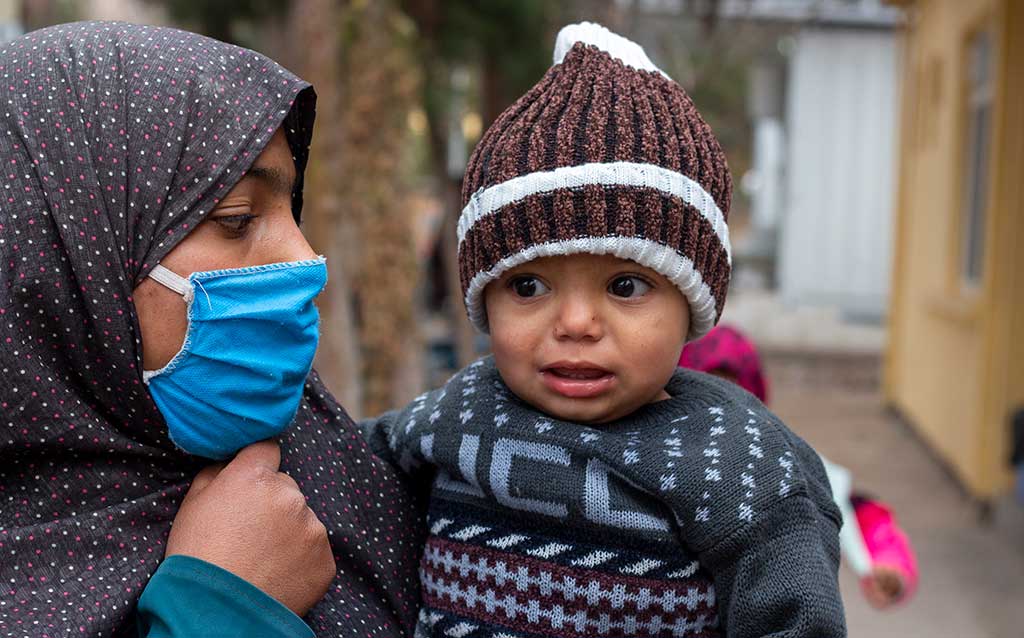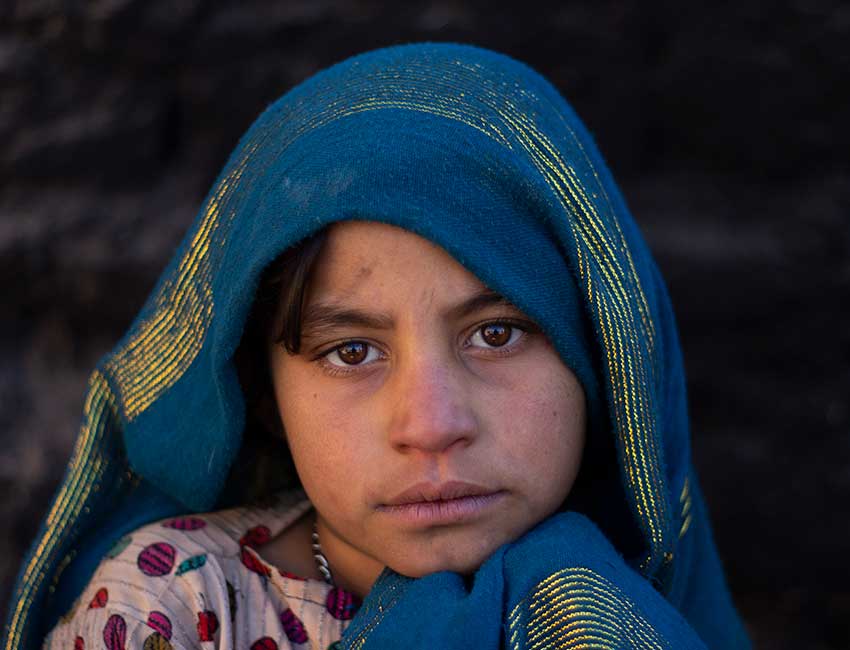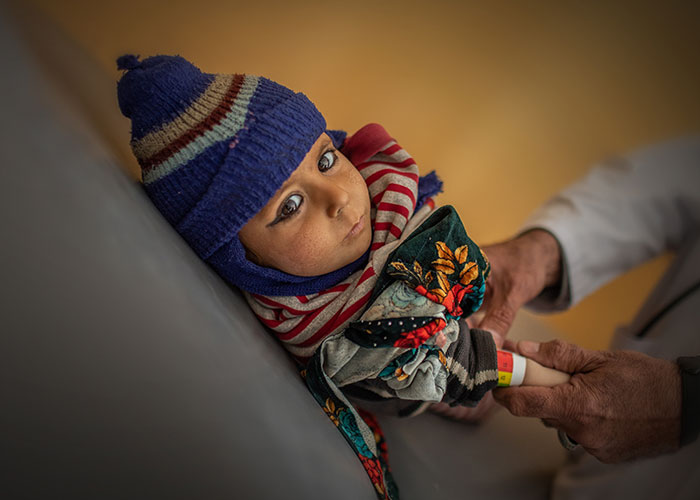Families in Afghanistan are experiencing unprecedented levels of hunger and malnutrition, with 8 million people on the brink of famine.
Hear from Mike Bonke, Action Against Hunger’s Country Director, to learn more about the current situation and how you can help.
Q. Can you describe the situation with the hunger and malnutrition crisis in Afghanistan right now?
“It’s difficult to put into words the scale of the challenge we are facing on the ground. Challenges are mounting every day as the snow grows deeper. We’re particularly worried about the mountainous regions as these will largely be cut off in the next few months and these are the areas where the malnutrition levels are at their highest.
“It’s a catastrophic scenario that has been complicated by Covid-19. Many of these families would have relied on being able to travel to neighbouring countries to earn money for the winter. Now they face a humanitarian crisis with little food in their pantry, rising food prices and little money to feed their children.
“It’s heartbreaking to hear, but many mothers are being forced to sell a child to feed a child. No parent should ever have to make that decision.”
Q. Why is this moment so dangerous?
“In the UK the idea of a white Christmas is magical, but in Afghanistan the onset of snow could prove deadly for many children. Many areas will effectively be cut off in the coming weeks and months. That will make access to healthcare incredibly difficult.
“This is a country experiencing extreme levels of food insecurity, exploding levels of malnutrition and where many families have little or no means of feeding their families. All of this is occurring during winter, when you’re unable to grow crops, many people can’t work, and families have to factor in how they will keep their families warm.
“Undoubtedly, humanitarian needs will grow as families struggle under these harsh conditions, and it is imperative that we do all in our power to ensure we maintain humanitarian corridors and can keep our clinics open.”

A boy with his mother outside a hospital in northwest Afghanistan.
Q. Temperatures in Afghanistan are plummeting – even reaching -16⁰C in some areas. What is it like for children fighting malnutrition during the harsh winter months?
“Malnutrition isn’t simply not having enough food to eat or being underweight. When a child is malnourished their body begins to shut down. They can’t fight infections and they struggle to regulate their bodies.
“Cold weather puts a huge strain on a child’s body as vital energy must be used to generate warmth. With a suppressed immune system and limited energy, many malnourished children will be at risk of developing hypothermia.”
Q. How much help is there at the moment? What are the gaps?
“Aid agencies are on the ground and doing everything in their power to avert a catastrophe, but the needs on the ground are overwhelming.
“Even before the current crisis, Afghanistan had suffered terrible droughts that affected food production and was still reeling from the economic impacts of Covid-19.”
Q. How are you helping women and girls?
We provide healthcare services including antenatal care, postnatal care and family planning. We support women who prefer to give birth at home and refer at risk pregnant mothers to specialist care.
We also treat women for malnutrition and advise on the best way for them to provide a healthy, nutritious diet for their children.
Q. How can donations save lives right now? How possible is it to bring people back from the brink?
“It costs just £1 to provide a day’s worth of therapeutic treatment to a child suffering from malnutrition. We are not talking vast sums of money here. Even if people can only give £10, that could be the difference between whether a child wins their battle with hunger or not.”



